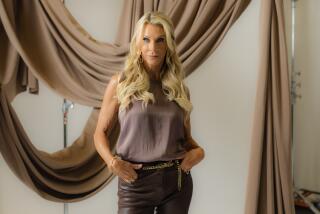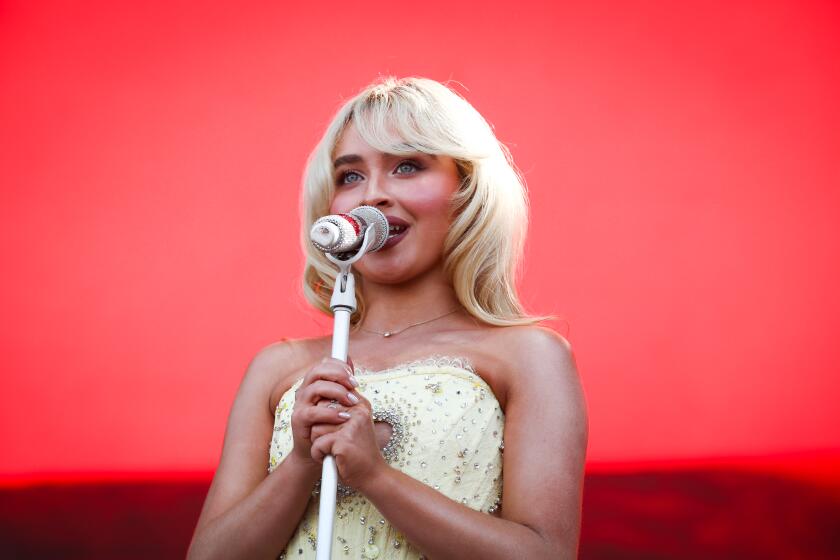‘The Bachelor,’ ‘The Bachelorette’ creator defends all-white cast of title role
For fans of “The Bachelor” and its spinoff, “The Bachelorette,” who have wondered why the veteran ABC dating franchise has never spotlighted a nonwhite contestant in the title role in any of their combined 21 seasons, the shows’ creator has come up with at least a partial answer: People of color apparently don’t want to be on the show.
“We always want to cast for ethnic diversity,” Mike Fleiss said in a recent interview with Entertainment Weekly, adding, “It’s just that for whatever reason, they don’t come forward. I wish they would.”
But one of television’s top producers had another word for the absence of minorities on “The Bachelor”: racism.
“[T]hey blame minorites [sic] for ‘not coming forward’. What a joke,” Shawn Ryan, creator of “The Shield” and Fox’s “The Chicago Code,” wrote on Twitter, discussing Fleiss’ comments. Ryan, whose dramas have included leading and prominent minority characters, maintained the absence was indicative of “[s]traight up racism. They just don’t think America will watch black bachelor [sic] or root for mixed-race marriage.”
Fleiss, who is about to start production on the seventh edition of “The Bachelorette,” which is scheduled to premiere May 23, did not make himself available for comment. Ryan also declined to elaborate.
Still, Ryan’s blasts represent some of the harshest public criticisms yet of what is one of ABC’s most high-profile franchises — “The Bachelor” just completed its 15th edition on Monday. While the reality television genre and its top shows such as “American Idol,” “Dancing With the Stars,” “The Biggest Loser” and “The Amazing Race” have always put a premium on showcasing a broad range of people reflective of a diverse America, “The Bachelor” and “The Bachelorette” have proven to be the exception since the series launched in 2002.
And even though ABC executives maintained two years ago that the show was “exploring” the possibilities of casting a person of color in the pivotal role, insiders said producers had little interest in pursuing a more diverse cast, and were unwilling to vary the chemistry of a hugely popular series and wary of a potential controversy stemming from an interracial romance.
Said Fleiss in the interview, “We tell better stories, we cast more relatable people and we’ve survived while others have fallen by the wayside.”
A further obstacle to more diversity is the show’s structure, in which the single “star” selects from a pool of romantic interests. A familiar pattern of “The Bachelor” and “The Bachelorette” is that the few minority singles in the initial group of participants rarely survive beyond the first elimination. One of the finalists is later chosen as the next “Bachelor” or “Bachelorette.”
In the Entertainment Weekly interview, Fleiss said he believed the new “Bachelorette,” Ashley Hebert, was “one-sixteenth Cherokee Indian, but I cannot confirm. But that is my suspicion.”
More to Read
The biggest entertainment stories
Get our big stories about Hollywood, film, television, music, arts, culture and more right in your inbox as soon as they publish.
You may occasionally receive promotional content from the Los Angeles Times.











